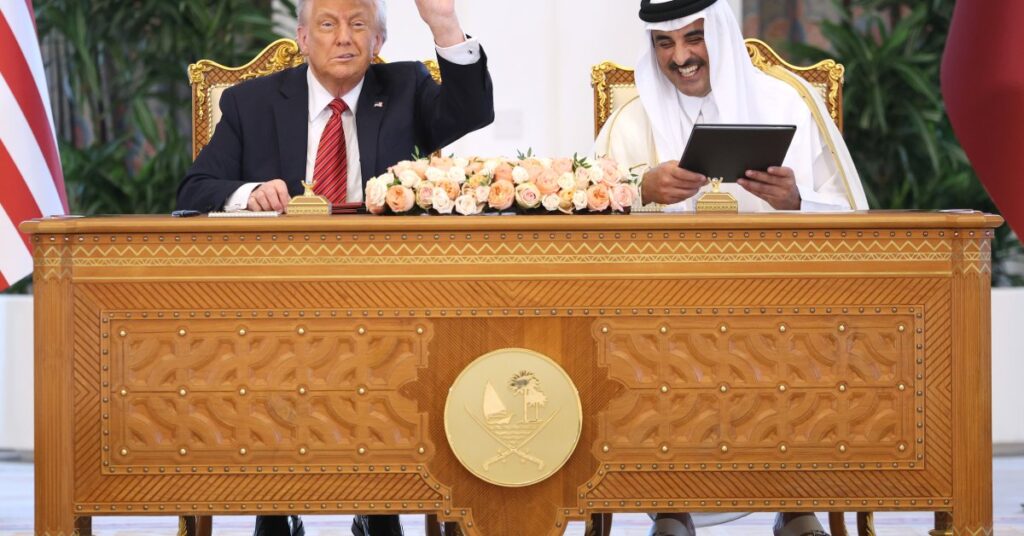President Donald Trump announced on Wednesday a $200 billion deal between Qatar Airways and Boeing, a lifeline for the beleaguered American aerospace giant and a powerful symbol of the diplomatic maneuvering defining his presidency.
The agreement, signed in Doha during Trump’s Middle East tour, includes the purchase of 160 Boeing jets by the state-owned Qatari carrier.
“It’s over $200 billion, but 160 in terms of the jets. That’s fantastic,” Trump said at the signing ceremony, flanked by Qatar’s Emir Sheikh Tamim bin Hamad Al-Thani and Boeing Chief Executive Kelly Ortberg.
The deal marks a rare bright spot for Boeing, whose fortunes have been in freefall. The manufacturer’s orders last year plummeted 60% amid a series of setbacks, including a catastrophic incident involving an Alaska Airlines 737 Max and a massive machinists’ strike that halted production for nearly three months. A fragile recovery had begun by year’s end, but Trump’s trade war threatened to undercut any gains, as tariffs may add millions to the cost of American jets abroad.
For Trump, the Doha signing was not merely about promoting U.S. manufacturing. It also underscored his personal fascination with aviation—a realm where his roles as businessman, President, and self-styled dealmaker seamlessly intersect. The President has long branded his own Boeing 757 as “Trump Force One” and is now contemplating an even grander airborne symbol of his influence: a luxury jet offered by Qatar to serve as a temporary Air Force One.
“Why should our military, and therefore our taxpayers, be forced to pay hundreds of millions of Dollars when they can get it for FREE from a country that wants to reward us for a job well done,” Trump posted on Truth Social. The President characterized the offer as a gesture of goodwill from Qatar, yet critics see it as another example of foreign influence seeping into American governance.
Security experts have cautioned that the Qatari aircraft would require extensive modifications to meet U.S. military standards, including countermeasures against nuclear and missile threats.
Intelligence officials have warned of the risks inherent in retrofitting a foreign-owned jet, a process that would involve tearing apart the plane’s luxurious interiors to check for espionage devices. NBC News reported that the process could cost over $1 billion and take years to complete.
Democrats in Congress have also raised the specter of the Constitution’s Emoluments Clause, which prohibits federal officials from accepting gifts from foreign governments without congressional approval.
The Qatar-Boeing deal is the latest in a series of high-profile aviation agreements signed during Trump’s four-day Middle East visit. Just a day earlier, Saudi Arabia’s sovereign wealth fund inked a $4.8 billion agreement with Boeing, and U.S. Commerce Secretary Howard Lutnick confirmed a $10 billion order from a British airline, part of the administration’s broader push to boost American exports.
Read the full article here


